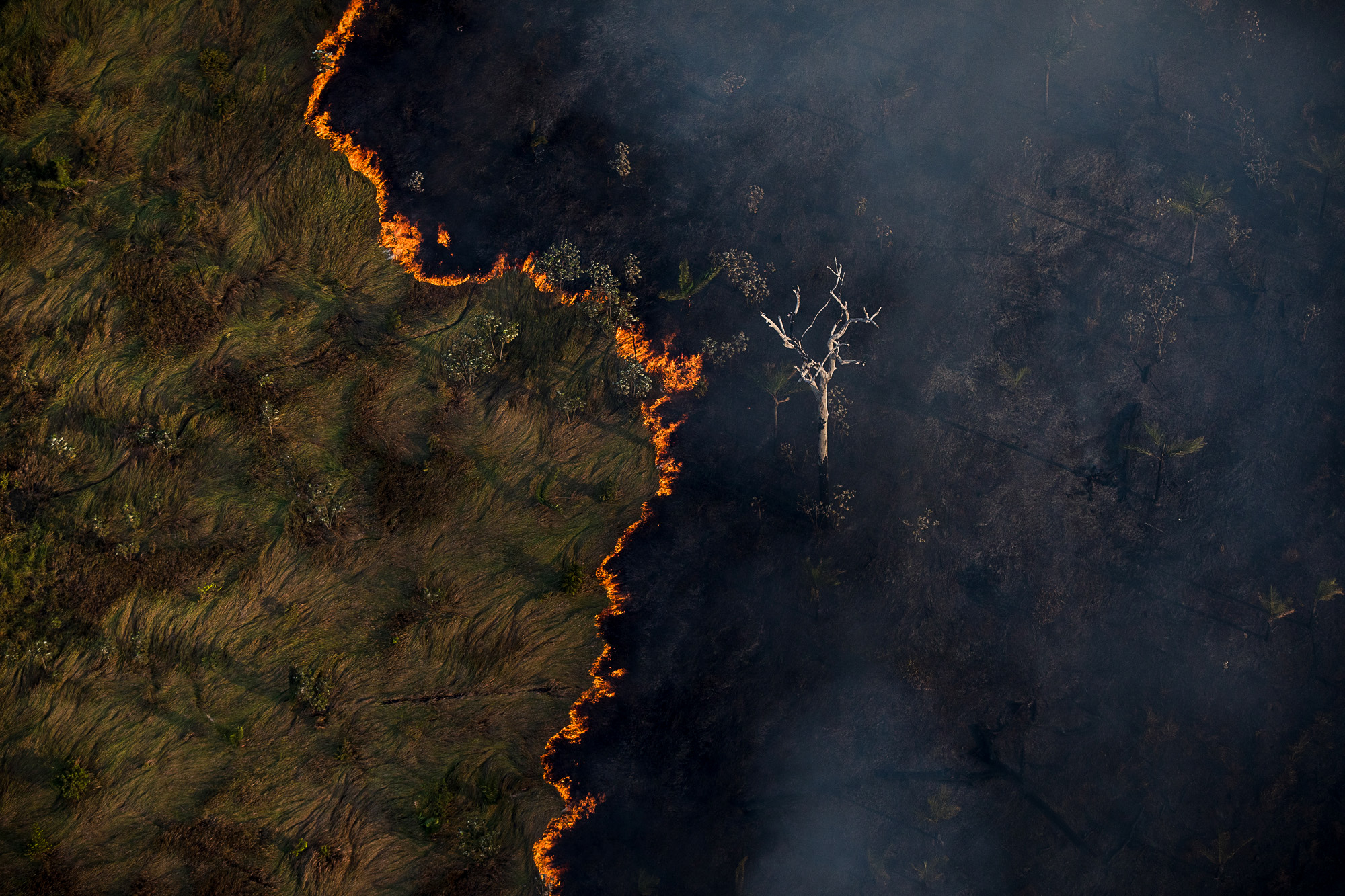On the same day the Supreme Federal Court is voting on the ‘Green Package’, organizations send a report to the UN on deforestation in Brazil
The organizations lodged the report on 30 March with accounts of Brazil´s lack of commitment regarding the reduction of deforestation in the Amazon region
 Queimada é vista em meio a área de floresta próximo a capital Porto Velho. Foto: Bruno Kelly/Amzonia Real.
Queimada é vista em meio a área de floresta próximo a capital Porto Velho. Foto: Bruno Kelly/Amzonia Real.
On 30 March, five Brazilian civil society organisations: Articulation of the Indigenous Peoples of Brazil (APIB), Conectas Human Rights, the Socioenvironmental Institute (ISA), Laboratório do Observatório do Clima (Climate Observation Laboratory) and WWF-Brasil lodged a report with the UN High Commissioner for Human Rights regarding the status of non-compliance with commitments to reducing deforestation of the Amazon region.
This took place on 30 March, the same day the Supreme Federal Court started its ruling on the Green Agenda, about actions that have a socioenvironmental impact, such as the suspension and neglect of the Action Plan for the Prevention and Control of Deforestation in Brazil´s Legal Amazon (PPCDAm) and the shrinking of the Amazônia Fund.
The report sent to the UN points to the impact of bills of law that aim to legalise land grabbing (known as grilagem) in the Amazon, citing them as a contributing factor in the increase in deforestation.
The report goes on to give specific recommendations for constructing consistent public policy to reduce the rate of deforestation.
The UN High Commissioner was chosen because the 4th Cycle of the Universal Periodic Review (UPR) for Brazil at the UN Human Rights Council, is to take place in 2022. This ´soft law´ mechanism, which happens every four and a half years, aims to guide countries towards the implementation of human rights at the national level. Member states assess the status of human rights implementation in the country that is under review and make recommendations on concrete measures that should be adopted. The assessment is organised in ´cycles´. In current cycles, the countries under review are questioned on the implementation of recommendations adopted in previous cycles.
In November, Brazil will be assessed by other UN member states and will be asked about all its international commitments, particularly voluntary recommendations adopted in the 3rd Cycle of the UPR (2017). These include “the continuation of efforts to implement the National Climate Policy for the reduction of deforestation in the Amazon”. In 2023, (probably in the first semester), Brazil will have to make a statement on the recommendations issued by member states in the 4th Cycle, advising whether they will be adopted or rejected. This will take place at a public session and will be broadcast by the UN Human Rights Council.
The organisations´ proposals are made on the backdrop of the environmental dismantling which has led to the suspension of actions that had previously been developed and had been successful, like, for example, the Amazônia Fund which for many years was the main source of funding for forest conservation actions. It is currently suspended, and has had no new projects since January 2019, even though there are almost 3 billion available.
Within this scenario of environmental dismantling, the proposals are pertinent, particularly with regards to deforestation and recommendations concerning legislative changes, like bill of law 191 which undermines environmental protection. The recommendations in the document include: “Not supporting legislative changes that facilitate or encourage deforestation, above all in the Amazon and the Cerrado” and “not shrinking the margins of indigenous lands that have been demarcated”.
Access the document here.


